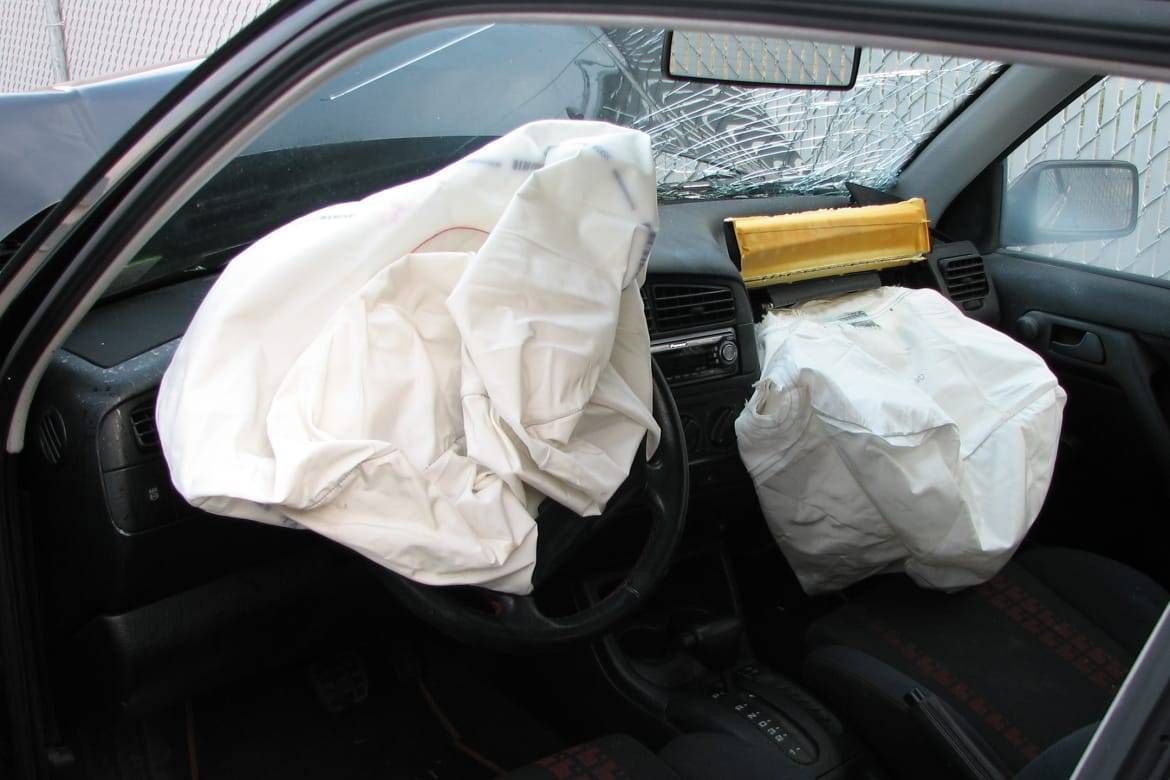Takata Files for Bankruptcy, Recall Repairs to Continue


CARS.COM —Takata, whose faulty airbag inflators led to the largest automotive recall ever, has filed for bankruptcy protection in Japan and its U.S. unit filed here. It will complete the stunning collapse of one of the world’s largest suppliers of auto safety systems but should not affect the repairs in the ongoing phased recall.
Related:
The inflator recall, which is being done in phases to prioritize the riskiest vehicles, affects 46 million driver- and front passenger-side inflators in 29 million vehicles in the U.S. after a massive expansion last year. By 2020, it will cover 64 million to 69 million inflators in 42 million cars, according to the National Highway Traffic Safety Administration.
The ammonium-nitrate propellant used in Takata inflators can deteriorate over time from exposure to heat and humidity and can explode with too much force, spraying the vehicle cabin with metal shards. At least 16 deaths and about 180 injuries worldwide have been linked to the defect.
The arranged bankruptcy reorganization, subject to court approval, calls for Detroit-area-based Key Safety Systems to acquire “substantially all” of Takata’s global assets and operations, including its large seat belt business, for $1.59 billion. Key Safety Systems is owned by Chinese auto parts maker Ningbo Joyson Electronic.
The ammonium-nitrate airbag inflator business will remain in a reorganized Takata, which said today that it would keep producing inflators through to 2020, then be wound down. According to Takata, that business has arranged additional debtor-in-possession financing in Japan for continued operation.
“We believe taking these actions in Japan and the U.S. is the best way to address the ongoing costs and liabilities of the airbag inflator issues with certainty and in an organized manner while ensuring that Takata’s operations worldwide continue in the ordinary course and without interruption,” Shigehisa Takada, Takata chairman and CEO, said in a statement.
Takata’s ammonium-nitrate inflators now incorporate a drying agent, called a desiccant, and it’s important that production continue to keep recall repairs moving. Automakers are turning to other suppliers, all of which use different propellants, but there are only a handful of airbag suppliers worldwide, and the process is lengthy to design and test replacements to fit individual vehicles — some as old as 2001. Honda, which has the largest number of recalled vehicles, now has been able to source all repair inflators from other suppliers, but more than a dozen other global automakers still are getting at least some of the parts from Takata.
Takata pleaded guilty this year to fraud charges in the U.S. for hiding the defect for years and agreed to a $1 billion criminal penalty. Also, $180 million in U.S. regulatory fines and penalties have been levied, and three executives have been indicted on criminal charges.
Takata said cash from the Key Safety Systems sale will go toward the U.S. government liabilities from the airbag recall. But what’s left over will not be enough cash to resolve Takata’s potential billions in financial fallout, including lawsuits and recall repair costs. Much of it has been getting absorbed by the automakers that used its inflators, now listed in the filing as unsecured Takata creditors. At the bankruptcy announcement, Takata said its total global liabilities are still to be fully tallied and it continues negotiations with automakers. In the U.S., four automakers have settled consumer class-actions suits to compensate owners and increase recall outreach efforts, but others remain in court.
There have been no reported failures of revised Takata inflators with the desiccant. NHTSA has given the company and automakers until 2020 to provide research proving their safety or they, too, eventually would have to be recalled. NHTSA says that as of March 3, 16,238,577, or 38.1 percent, of the currently recalled airbags had been repaired, and it has put in place an effort to speed up and prioritize the supply of parts. It also is working with automakers to increase efforts to notify owners and encourage them to get the repairs done.

Former D.C. Bureau Chief Fred Meier, who lives every day with Washington gridlock, has an un-American love of small wagons and hatchbacks.
Featured stories




